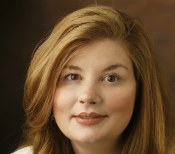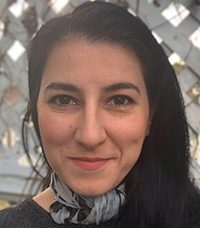By Jenna Somers

When doctoral student Basak Çermikli Ayvaz saw an opportunity to secure funding to partner with educators in Turkey to support multilingual and multicultural education, she discussed it with her advisor, Emily Phillips Galloway, assistant professor of literacy education. This led the researchers, both in the Department of Teaching and Learning at Vanderbilt Peabody College of education and human development, to obtain a grant from the U.S. State Department to collaborate with colleagues at the Regional English Language Office in Turkey and Dokuz Eylül University to design a course for preservice English language teachers studying at the university.

Multilingual education has become increasingly important in Turkey. In the past decade, Turkey’s refugee and asylum-seeking population has more than doubled from 1.7 million people in 2014 to an estimated 3.9 million people today, 90 percent of whom are Syrians displaced by ongoing conflict. This tremendous influx of refugees and immigrants has transformed Turkey’s educational landscape, as teachers previously untrained in managing multilingual and multicultural classrooms now must learn to educate an increasingly diverse population. For Çermikli Ayvaz, who was educated in Turkey and has deep ties to the education community there, these education challenges are particularly salient.
“We aim to support Turkish educators to create educational environments in which linguistically and culturally diverse students can thrive,” said Phillips Galloway, primary investigator on the project with Çermikli Ayvaz, who studies in the language, literacy, and culture concentration in Peabody’s learning teaching, and diversity program. As part of the project, the Vanderbilt team will partner with Dr. Irem Comoglu and Eda Akgün Özpolat, a professor and doctoral student, respectively, at Dokuz Eylül.
Phillips Galloway and Çermikli Ayvaz plan to travel to Turkey as early as the end of April to deliver part of the course content in person. As they prepare for the trip, they have spent the past two months thinking about how they can best support their collaborators and students in Turkey following the devastating earthquakes.
“For refugee and migrant children impacted by this natural disaster, the need for supportive educators is even greater. Educators, too, are struggling in the wake of the earthquakes. Therefore, in our course, we will engage participants in thinking through the design of classrooms that welcome and affirm the myriad of emotions that children—especially those who’ve experienced war, forced migration, and now an earthquake—bring to school,” Phillips Galloway said. To that end, the team has designed a series of activities for educators to pilot that help to invite their students to share their experiences in the classroom.
While the team also recognizes the challenges posed by Turkey’s historical lack of multicultural and multilingual teacher training, they see this project as an opportunity to leverage the bilingual capabilities of many preservice English language teachers at Dokuz Eylül University. Phillips Galloway and Çermikli Ayvaz plan to draw on their experiences with translanguaging curricula (using more than one language flexibly and fluidly in classroom lessons without reinforcing strict separation between learners’ linguistic resources) to support educators in elevating students’ voices during instruction.
Additionally, the deep knowledge of educational settings outside of the U.S. brought by international students like Çermikli Ayvaz deepen the value of these partnerships, as their engagement bridges cultural differences and reflects the purpose of international higher education.
“My experience at Peabody as an international student has been a thrilling and transformative journey,” Çermikli Ayvaz said. “Peabody College is a very supportive community with a brilliant group of doctoral and professional students and wonderful faculty. I have learned with and from peers who are from different parts of the world and the U.S., and I have gotten the chance to analyze teaching and learning issues from a variety of perspectives. After I graduate, I hope to continue working in academia and building international research-practice partnerships.”
Importantly, Phillips Galloway and Çermikli Ayvaz hope to apply lessons they’ve learned from working with multilingual students in the U.S. to support their Turkish colleagues, as well as to examine how these models must be adapted for new contexts. Indeed, Phillips Galloway and Çermikli Ayvaz understand that U.S. models of education cannot be simply transferred to international contexts. Rather, international collaborations like this one offer invaluable opportunities for researchers and educators to think about similar social and educational issues from different cultural perspectives, and, in the process, to reimagine and redesign these models. According to Phillips Galloway, while some aspects of the education of multilingual youth in the U.S. may transfer to new settings, others are not as durable.
“Models that have worked in U.S. settings cannot simply be plunked down in other contexts and have the same results. Rarely, though, do educators have the chance to do the dynamic work of rethinking these models in relation to a new socio-cultural context. In this project, we will do just that! We are glad we have this opportunity to learn from our colleagues in Turkey and share what we have found in our research and practice with them,” Phillips Galloway said.
